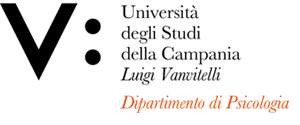Alfonsina D'IORIO
Insegnamento di TIROCINIO PRATICO VALUTATIVO B5
Corso di laurea in SCIENZE E TECNICHE PSICOLOGICHE
SSD: NN
CFU: 2,00
ORE PER UNITÀ DIDATTICA: 16,00
Periodo di Erogazione: Secondo Semestre
Italiano
| Lingua di insegnamento | ITALIANO |
| Contenuti | I disturbi emotivo-affettivi nelle cerebrolesioni: aspetti teorici e strumenti di valutazione. |
| Testi di riferimento | Articoli scientifici e altri materiali forniti durante il tirocinio pratico valutativo. |
| Obiettivi formativi | Acquisire conoscenze e competenze teoriche sulle modalità di somministrazione, sulle procedure di attribuzione del punteggio e sull’interpretazione dei risultati nell’ambito dei principali strumenti indaganti i disturbi emotivo-affettivi nelle cerebrolesioni. |
| Prerequisiti | Conoscenze di base di neuropsicologia. |
| Metodologie didattiche | Lezioni frontali, esercitazioni pratiche e discussione di casi clinici. |
| Metodi di valutazione | Valutazione della partecipazione attiva alle esercitazioni pratiche e presentazione di un report su aspetti legati ai disturbi emotivo-affettivi nelle cerebrolesioni. |
| Altre informazioni | Attraverso lezioni frontali ed esercitazioni pratiche guidate, gli studenti avranno la possibilità di acquisire conoscenze in merito ai disturbi emotivo-affettivi che possono seguire alle cerebrolesioni, e alla valutazione della relativa sintomatologia. |
| Programma del corso | - Introduzione ai principali disturbi emotivo-affettivi che è possibile riscontrare in un paziente con cerebrolesione attraverso l’analisi aggiornata della letteratura scientifica. |
English
| Teaching language | Italian |
| Contents | Emotional-affective disorders in brain injuries: theoretical background and assessment tools. |
| Textbook and course materials | Scientific articles and other materials provided during lectures. |
| Course objectives | To acquire theoretical knowledge and skills on administration methods, scoring procedures, and interpretation of the results of the main assessment tools investigating emotional-affective disorders in brain injuries. |
| Prerequisites | Basic knowledge of neuropsychology. |
| Teaching methods | Lectures, practical exercises and discussion of clinical cases. |
| Evaluation methods | Assessment of active participation in the practical exercises and presentation of a report on aspects related to emotional-affective disorders in brain injuries. |
| Other information | Through lectures and guided practical exercises, students will acquire knowledge about the emotional-affective disorders that can follow a brain injury, and about the assessment of related symptoms. |
| Course Syllabus | - Introduction to the main emotional-affective disorders that can be found in a patient with brain injury through an up-to-date analysis of the scientific literature. |








